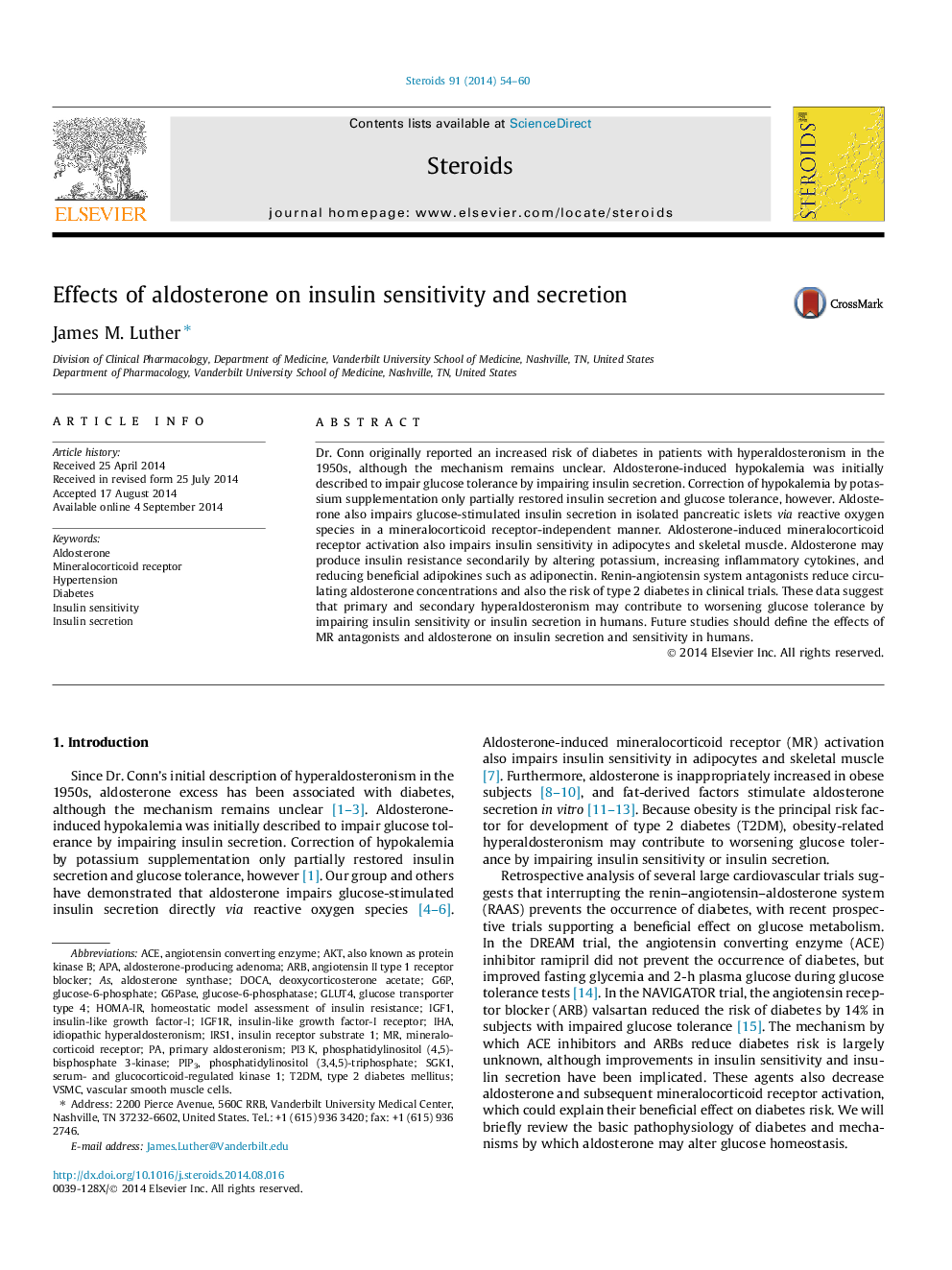| Article ID | Journal | Published Year | Pages | File Type |
|---|---|---|---|---|
| 2027619 | Steroids | 2014 | 7 Pages |
•Aldosterone excess is associated with obesity, hypertension, and diabetes.•Renin-angiotensin system antagonists reduce aldosterone concentrations and diabetes risk.•Aldosterone reduces insulin sensitivity in skeletal muscle and adipocytes.•Aldosterone impairs insulin secretion in isolated islets and patients with hyperaldosteronism.•Hypertension treatment may worsen glucose tolerance by increasing aldosterone.
Dr. Conn originally reported an increased risk of diabetes in patients with hyperaldosteronism in the 1950s, although the mechanism remains unclear. Aldosterone-induced hypokalemia was initially described to impair glucose tolerance by impairing insulin secretion. Correction of hypokalemia by potassium supplementation only partially restored insulin secretion and glucose tolerance, however. Aldosterone also impairs glucose-stimulated insulin secretion in isolated pancreatic islets via reactive oxygen species in a mineralocorticoid receptor-independent manner. Aldosterone-induced mineralocorticoid receptor activation also impairs insulin sensitivity in adipocytes and skeletal muscle. Aldosterone may produce insulin resistance secondarily by altering potassium, increasing inflammatory cytokines, and reducing beneficial adipokines such as adiponectin. Renin-angiotensin system antagonists reduce circulating aldosterone concentrations and also the risk of type 2 diabetes in clinical trials. These data suggest that primary and secondary hyperaldosteronism may contribute to worsening glucose tolerance by impairing insulin sensitivity or insulin secretion in humans. Future studies should define the effects of MR antagonists and aldosterone on insulin secretion and sensitivity in humans.
